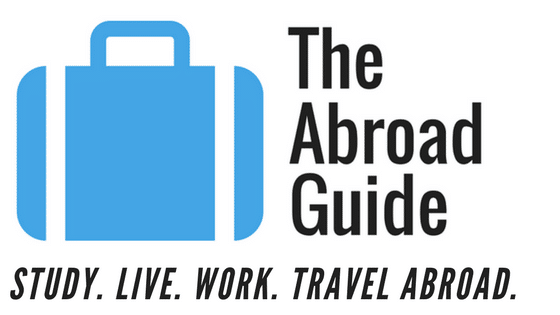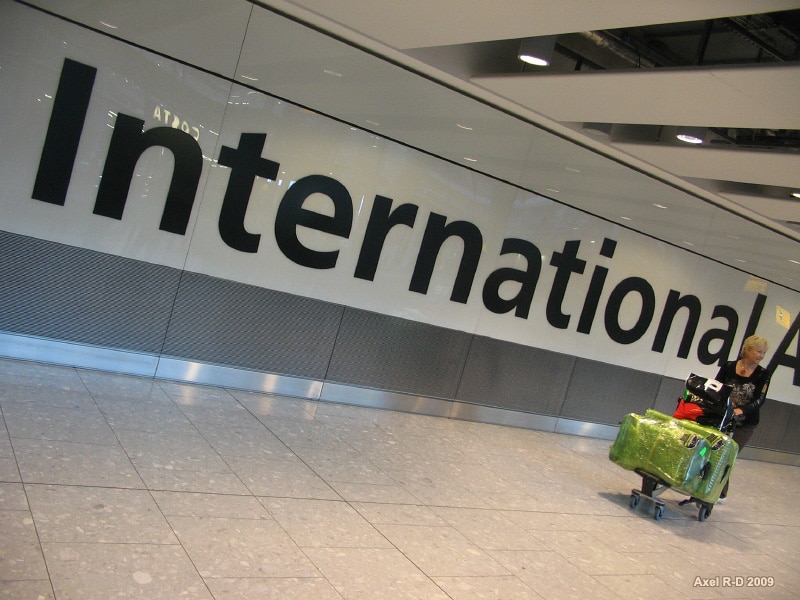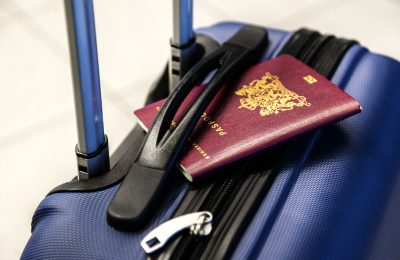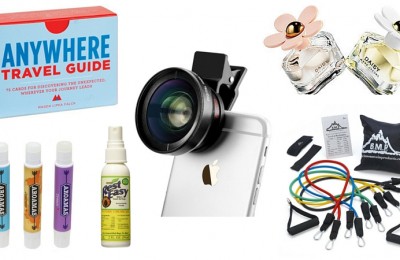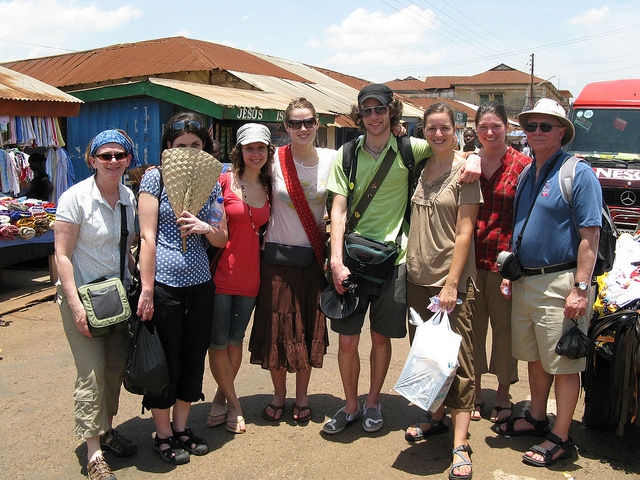“I want to find out how to study abroad.”
I literally LOVE hearing this statement come from The Abroad Guide community. It does take a lot of time to cover, though! Coordinating a study abroad experience takes a lot of research, planning, and work, but the moment you board the plane to your study abroad destination, you’ll feel like it was all worth it, I promise.
So, let’s talk about how to study abroad and the steps you need to take to make it happen. I suggest starting with the first step as early as possible… before you start freshman year is NOT too early! The more planning time, the better.
1. Figure out your financial situation
The cost of study abroad varies so much for a million different reasons, but this means that there’s a study abroad option for almost every single financial situation.
Talk to Mom and Dad
Your absolute first point of contact is your parents or guardians. A simple “I want to study abroad” declaration is a great way to get the conversation started and to get onto the topic of how to study abroad with your current situation. Every family is different, some parents are happy to foot the bill for a study abroad semester, while others don’t want to, or can’t.
It’s important to know that if your parents can’t help with the financial side of study abroad, that doesn’t mean you can’t make it happen. Also consider bringing the topic up with other family members, as they might see the value in it for you and offer to help in some way or another.
Read next: How to Convince Your Parents to Let You Study Abroad
How to study abroad with your own money
Plenty of students pay their own way for study abroad in various ways– I paid for a pretty significant chunk of mine, partially by working my butt off to make money before I went abroad, and partially by getting lots and lots of scholarships, which I’ll talk more about later.
Put it all in a spreadsheet
Finding a study abroad experience that will work for your situation is much easier when you have a concrete budget number to work with. Use excel to figure out how much money you could bank before your study abroad semester, add what your family is willing to give you, add any savings you have, etc. so you know how much money you have to work with.
2. Decide what you want to get out studying abroad
Studying abroad looks different for different students. Some students want to go abroad to do some language learning. Some want opportunities to volunteer, others want to intern or work abroad for the international experience. Figure out what your reason is, although it doesn’t have to be just one. But knowing why you want to go abroad will help you narrow down the program options you’ll have, which is a good thing because there are TONS.
 3. Ask your school about your options
3. Ask your school about your options
I studied abroad in Antwerp, Belgium. I had never even heard of Antwerp before I was told about this specific study abroad program I ended up doing. The reason I did it was because it covered classes I was going to have to take when I was accepted into my university’s business school. It fit perfectly into my 4-year class schedule, so it sounded like a great opportunity, and I’m so glad I chose that program.
Check out your school’s study abroad department’s website, and schedule an appointment to go speak with someone about your options. Talking one on one with an advisor will get you very specific information on how to study abroad in a way that works with your plans, degree, situation, etc.
4. Research outside options
If your college doesn’t offer a study abroad program that will work for you, look elsewhere. You can do an exchange program directly with a school abroad, you can apply for a study abroad program via another school, or you can go through an independent provider.
There are tons of options and lots of information out there, which is why knowing what you want to get out of your study abroad experience is important, because it will help you narrow down your choices and find what’s going to work for you.
5. Choose your top program options
Ok, once you’ve done all of your research, you’ll want to shortlist up to five potential study abroad programs that you think will work for you and your situation. Once you’ve got those and you feel really confident that you’d enjoy each of them, it’s time to…
6. Apply
Most study abroad programs require you to apply. Some are very selective, while others aren’t. The program I applied to was very selective, and I remember being so incredibly excited to be selected, and I had a feeling that my life would change soon 🙂
Figure out everything you need to apply, like recommendations, financial info, application essays, etc. and get it all organised and done way before the application deadline. Just trust me, get it done early.
7. Make a plan
Once those application acceptances come back (fingers crossed!), before you decide which program to choose, make a plan for each one. How will you get the money you need to pay the fees? How will the rest of your college career pan out after you’ve spent a semester abroad doing that program? Seeing how the next couple of years will go if you choose option A as opposed to option B, etc. is a great way to help you ultimately pick just one.
Once you’ve chosen…. Congratulations! You’re going to be studying abroad.
Read next: How to Calculate the Cost of Your Study Abroad Semester
8.Apply for scholarships
Want to know how to study abroad for cheap(er)? The key is to get scholarships, lots and lots of them, both for study abroad, and for general college expenses. I paid for a year’s worth of college with scholarships and grants, so have a look at my detailed guide on how to get scholarships to help you pay for study abroad. You could find yourself with a few thousand dollars in savings.
9.Book your flight and get other essentials
Once you’ve chosen your study abroad program and paid your deposit, you’ll start to get lots of info through about your impending semester abroad. Once you know what dates you need to be at your study abroad destination, book your international flights. Make sure you read our post on *how to get cheap student flights for study abroad, you could save yourself a few hundred dollars.
In the couple of months before you leave, make sure you get yourself the essentials, and do so well in advance so you’re not rushing around the day before you leave trying to find a new carry-on size suitcase!
Read next: What to Pack for Your Study Abroad Semester
10. Go!
This is the easiest step, but maybe the scariest. You might feel overwhelmed and scared as you say goodbye to your family and friends at the airport, but you’re about to embark on some of the best months of your life as long as you take advantage of it while you can.
In no time at all, you’ll be telling someone else about your experience, how much you loved it, and you’ll be advising them on how to study abroad themselves.
